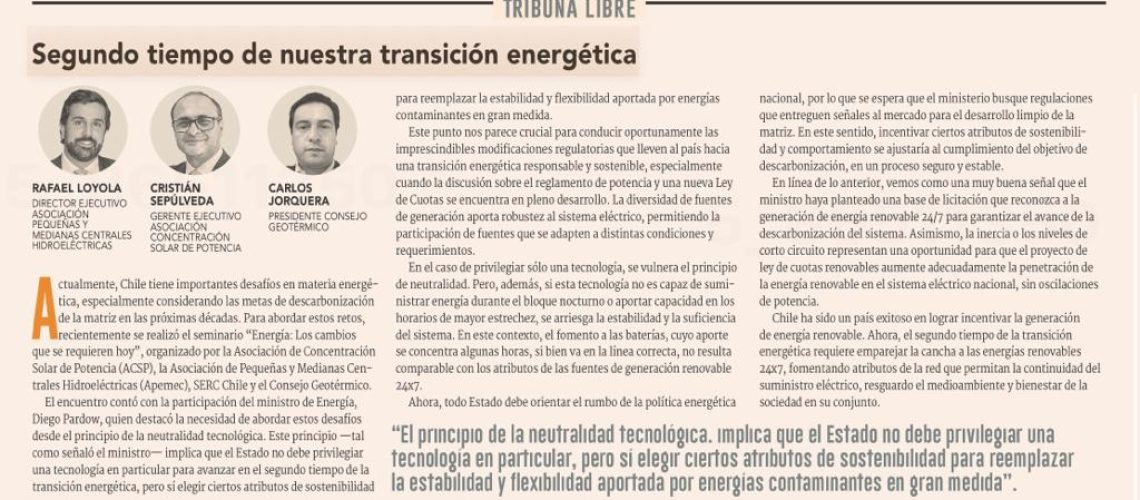Source: Diario Financiero
Column by: Cristián Sepúlveda, ACSP Executive Manager, Carlos Jorquera, Geothermal Council President, Rafael Loyola, APEMEC Executive Director.
Currently, Chile has significant challenges in energy matters, especially considering the matrix’s decarbonization goals in the coming decades. To address these challenges, the seminar “Energy, the changes that are required today” was recently held, organized by the Association of Solar Power Control (ACSP), the Association of small and medium-sized hydroelectric companies (APEMEC) SERC Chile and the Council Geothermal.
The meeting was attended by the Minister of Energy, Diego Pardow, who highlighted the need to address these challenges from the principle of technological neutrality. This principle – as pointed out by the minister – implies that the State should not privilege a particular technology to advance in the second stage of the energy transition, but should choose certain sustainability attributes to replace the stability and flexibility provided by highly polluting energy extent.
This point seems crucial to us to timely conduct the essential regulatory changes that lead the country towards a responsible and sustainable energy transition, especially when the power regulation and a new Quota Law are in full swing. The diversity of generation sources provides robustness to the electrical system, allowing the participation of sources that adapt to different conditions and requirements.
In the case of favoring only one technology, the principle of neutrality is violated. But, in addition, if this technology is not capable of supplying energy during the night block or providing capacity during the tightest hours, the stability and sufficiency of the system is at risk. In this context, the promotion of batteries, whose contribution is concentrated for a few hours, although it goes in the right direction, is not comparable with the attributes of 24×7 renewable generation sources.
Now, every State must guide the course of the national energy policy, so the ministry is expected to seek regulations that provide signals to the market for the clean development of the matrix. In this sense, incentivizing certain attributes of sustainability and behavior would be adjusted to meet the decarbonization objective, in a safe and stable process.In line with the above, we see as a very good sign that the minister has proposed a bidding basis that recognizes the generation of renewable energy 24/7 to guarantee the progress of the decarbonization of the system. Likewise, inertia or short circuit levels represent an opportunity for the renewable quota bill to adequately increase the penetration of renewable energy in the national electrical system, without power oscillations.
Chile has been a successful country in achieving incentives for the generation of renewable energy. Now, the second period of the energy transition requires leveling the field to 24/7 renewable energies, promoting network attributes that allow the continuity of the electricity supply, protection of the environment and well-being of society as a whole.

